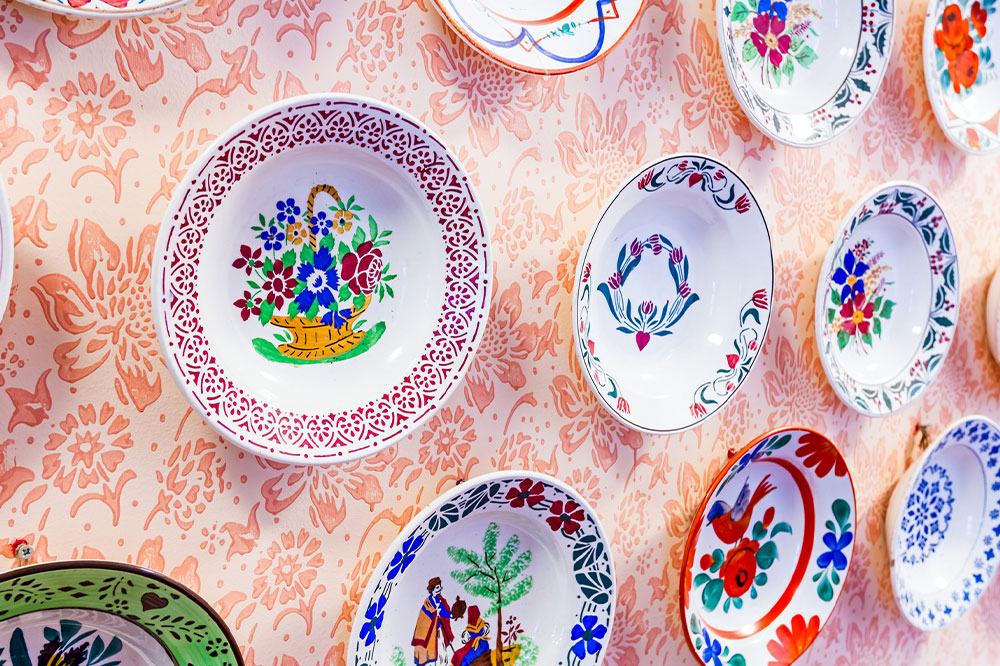6 Types of Precious Antique Dishes and Their Value
The last time you stumbled upon your grandparents’ vintage crockery and utensils, chances are you didn’t linger much. Today, there are only a few connoisseurs of antique dishes and their intricately designed patterns and meticulous craftsmanship. Still, the sheer regality and cultural relevance of these dishes are undeniable. Every piece of vintage cutlery, crockery, and tableware represents an untold story from a bygone era. Here are some antique dishes available and their current values.
Noritake china
Noritake china, better known as Noritake porcelain, is the brainchild of a Japanese enterprise, Noritake, dating back to the turn of the 20th century.

Noritake china collections entail several vivid, vibrant ceramic designs and patterns. The designs have been incorporated into different kitchenware sets, including teapots, vases, and dinner plates. The value of Noritake chinaware preserved in mint condition can range from a few dollars to over a thousand dollars, with newer collections being even more pricey. On average, a single Noritake china piece may cost between $2 and $8.
Blue Ridge pottery
Following the construction of certain railroads in the early 1900s, railway companies began delivering hand-painted dishes to department stores nationwide. The womenfolk of a small town were the helping hands in this endeavor, meticulously handcrafting these works of art. The dishes emerged in the market as “Blue Ridge pottery.”
Although their production was discontinued in the 1950s due to the burning of the factory, Blue Ridge pottery pieces already in existence continue being traded. One of the most distinguishing features of these antique dishes is that every single piece has a unique pattern because they were hand-painted. Blue Ridge antique dishes are valued between $13 and $65 online.
Depression-era or oatmeal glassware
Depression-era glassware isn’t as popular for its appearance as for the anecdote behind its entry into homes. These pieces came packed inside boxes of oats, thus earning the name “oatmeal glassware.” Oatmeal glassware was manufactured in bulk from 1920 to 1950, covering the decade of the Great Depression. This was when the appeal of expensive, handcrafted glassware began fading away, and manufacturers began understanding the need to switch to mass-produced glassware products to fulfill the rising demands of the working class.
Depression glassware was a popular choice among female customers seeking the aesthetic appeal of classic glassware but at a substantially lower price. These products come in various colors, including green, pink, and purple. One may find depression-era glassware sets for $300 to $500; however, sets with pieces comprising rarer hues and patterns may cost up to $1,500.
English bone china tea sets
The quintessential English bone china sets, with their broad, golden handles and spouts carved with intricate patterns, redefine majesty and elegance. Often passed down as priceless family heirlooms, these tea sets are also a favorite among chinaware connoisseurs. Their spellbinding intricate patterns recount the splendor of the royal British high-tea tradition.
Today, precious antique English bone china tea sets are worth thousands of dollars, and the ones with rarer patterns are even more expensive. For instance, a single Shelley Lincoln teacup in excellent condition and sporting the rare pattern of a lily of the valley was valued at approximately $1,200.
Jewel Tea autumn leaf sets
The Hall China Company first manufactured these elegant ceramic antique pieces in the 1930s. They were handed out to customers in exchange for the stamps they earned from their purchases at the Jewel Tea Company. These ceramics sport subtle yet aesthetic patterns of leaves and flowers and are available in various types of kitchenware, including casseroles, tea sets, plates, water pitchers, and mixing bowls.
The prices of Jewel Tea ceramics vary based on the product and its condition. For example, a single, small autumn leaf oval platter with some scratches in the finish is available for as low as $25. In contrast, elegant autumn leaf Aladdin teapots in mint condition are valued at $125.
Antique Rose Medallion china
These brightly colored, generously patterned antique pieces are set apart by their designs and motifs. Rose Medallion porcelain became immensely popular in the mid-19th century to fulfill Europe’s rising demand for imported china. All antique Rose Medallion pieces follow the same basic pattern: a bird or a peony as the central medallion and four to five panels encircling the center. These panels typically contain several motifs and patterns, including depictions of butterflies, trees, birds, and humans.
Antique Rose Medallion china patterns are found in several kinds of kitchenware, including cups, bowls, plates, and teapots. Today, these antique dishes are valued based on product type and patterns. For instance, a large Rose Medallion punch bowl dating back to the 1870s is worth $7,000, whereas a pair of large Rose Medallion vases dating back to the 19th century is valued at $18,500.

